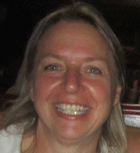My view of an alternative assessment is a carefully designed active-learning exercise that motivates students in their approach to learning, helps them develop problem-solving skills, and allows them to assess their own understanding of the course content. I want creative learning spaces–whether that’s in lectures, labs or tutorials!
I design active-learning exercises that promote the application of knowledge and allow for problem solving and reflection, rather than merely providing facts as answers to specific questions. I often use an investigative approach during which students must work through the evidence and provide a solution. I use this strategy in lectures, labs and tutorials. In summary, students must demonstrate their ability to use the knowledge they’ve acquired about a topic through performance (video simulations; role play) in unique and innovative ways.
Below are examples of two alternative (authentic) assessments that I’ve used in an upper-level Developmental Biology course (Biol4490, TRU 2021) and in a lower-level nonmajors Biology course ( Biol1050 TRU 2022). The assessments are very different, but they both require that students think through why they made certain decisions to obtain their final product and can, thus, be considered authentic. Both assessments can be used in a remote or face-to-face setting.


